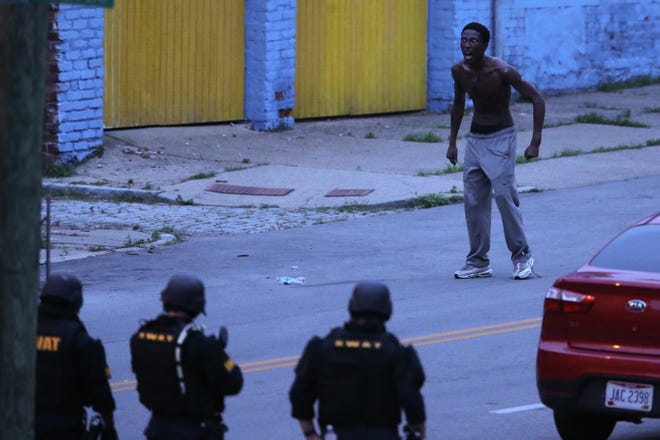Opinion: Begging for new approach to mental health emergencies

In 2019, 214 people called the police for a mental health-related ("mentally impaired") matter in Roselawn alone. This pales in comparison with the 430 calls received from Avondale, or the 597 from Westwood.
Per records accessed via Insights.cincinnati-oh.gov, 7,026 people called the police in 2019 for a mental health/impairment issue in Cincinnati. Of those, roughly half were deemed violent and half were deemed nonviolent, though the criteria for using these descriptors are unclear to me at this time.
In reviewing these records spanning over several years, it is abundantly clear that these instances are increasing, which leads me to one conclusion and one conclusion only: Our city is begging for new resources and new approaches to this issue.
It is worth noting that while these numbers increased in 2020, they have been increasing locally and nationally for many years. While I'm sure the pandemic contributed to the increase specifically in 2020, it should not be incorrectly blamed for this increase alone. In fact, historically, suicide rates specifically rise after a national or global crisis, not during. This means that we should, unfortunately, expect that this is going to surge as the pandemic recedes, unless we proactively get ahead of it.
Other cities have begun implementing progressive measures to address this, with phenomenal results. In Denver, their STAR Program has responded to 1,400 mental health and other related calls in their first year of operation, just in their downtown neighborhood. This is the result of a 4-year collaboration between their police department during which a team of 40 social workers operated in tandem with the department to provide support and assistance. This allowed for city leadership and citizens to see the benefit of taking a more holistic, trauma-focused approach to policing in appropriate situations, and now they have a team designated to respond to calls independently of their police.

Why would adopting this benefit Cincinnati? The obvious reason is that we could better serve our most vulnerable citizens, in all 52 neighborhoods, without spreading our officers thin or asking them to intervene in situations they are not fully trained for. A secondary reason is that this forward-thinking movement would also make Cincinnati a desirable place to bring in more therapists and social workers, as many young, new professionals in the field are looking to work outside of the traditional therapeutic setting and are willing to work in an emergency-response setting. With the recent loss of Cincinnati Christian University and its nationally-renowned Masters of Arts in Counseling program, we need more to offer to the incoming generation of therapists and social workers to bring them and keep them in our wonderful city.
In 2020 alone, we as a nation lost 950,000 years of life due to suicide, according to the Centers for Disease Control. Think about that for just a moment. 950,000 years of life lost.
If you or a loved one are experiencing suicidal thoughts or ideation, there are multiple steps you can take to maintain safety outside of (or in addition to) calling 911. The first is to call the National Suicide Prevention Hotline at 1(800) 273-8255. Secondly, you can also call Talbert House's local 24/7 crisis hotline at (513) 281 - 2273 (CARE). For children specifically, you can reach Children's Hospital's Psychiatric Intake Response Center (PIRC) at (513) 636 - 4124.
Stacey Smith of West Price Hill is a licensed professional counselor and candidate for Cincinnati City Council.
